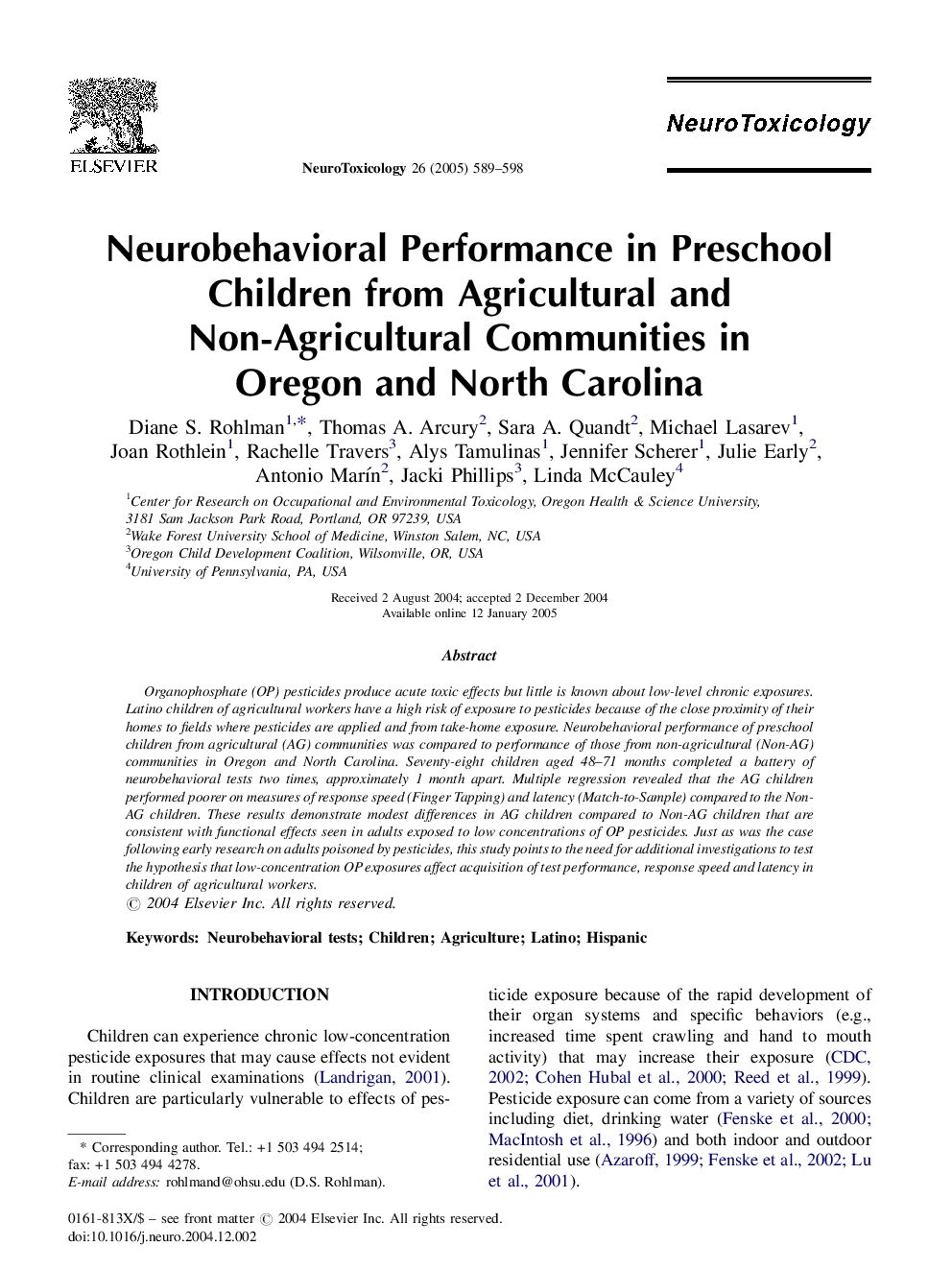| Article ID | Journal | Published Year | Pages | File Type |
|---|---|---|---|---|
| 9032153 | NeuroToxicology | 2005 | 10 Pages |
Abstract
Organophosphate (OP) pesticides produce acute toxic effects but little is known about low-level chronic exposures. Latino children of agricultural workers have a high risk of exposure to pesticides because of the close proximity of their homes to fields where pesticides are applied and from take-home exposure. Neurobehavioral performance of preschool children from agricultural (AG) communities was compared to performance of those from non-agricultural (Non-AG) communities in Oregon and North Carolina. Seventy-eight children aged 48-71 months completed a battery of neurobehavioral tests two times, approximately 1 month apart. Multiple regression revealed that the AG children performed poorer on measures of response speed (Finger Tapping) and latency (Match-to-Sample) compared to the Non-AG children. These results demonstrate modest differences in AG children compared to Non-AG children that are consistent with functional effects seen in adults exposed to low concentrations of OP pesticides. Just as was the case following early research on adults poisoned by pesticides, this study points to the need for additional investigations to test the hypothesis that low-concentration OP exposures affect acquisition of test performance, response speed and latency in children of agricultural workers.
Related Topics
Life Sciences
Environmental Science
Health, Toxicology and Mutagenesis
Authors
Diane S. Rohlman, Thomas A. Arcury, Sara A. Quandt, Michael Lasarev, Joan Rothlein, Rachelle Travers, Alys Tamulinas, Jennifer Scherer, Julie Early, Antonio MarÃn, Jacki Phillips, Linda McCauley,
